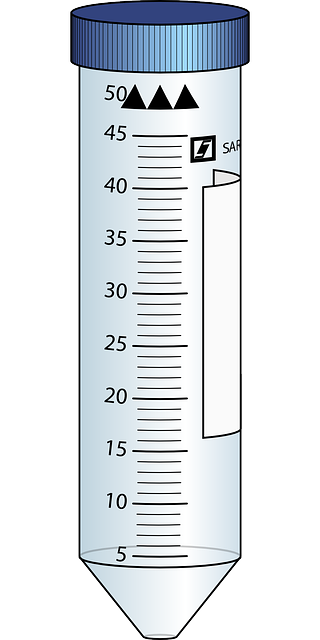Cholesterol is essential for bodily functions but high 'bad' (LDL) cholesterol levels increase heart disease and stroke risks. The UK National Health Service promotes regular Well Person Blood Tests for adults aged 40+ every 5 years to detect high cholesterol early. These tests assess various health markers, including LDL vs HDL cholesterol types, offering a comprehensive cardiovascular health overview. Optimal UK guidelines suggest HDL above 60 mg/dL, LDL below 140 mg/dL, and triglycerides under 150 mg/dL; deviating from these requires medical advice for lifestyle changes or medication to manage cholesterol effectively.
In the UK, understanding cholesterol levels is crucial for maintaining optimal health. This article guides you through the process of measuring cholesterol with a simple UK Well Person Blood Test, a comprehensive assessment tool widely available. We’ll explore what cholesterol is and why it matters, delve into the test’s components, and interpret results to empower you in managing your cardiovascular health. The UK Well Person Blood Test offers valuable insights, enabling proactive steps towards a healthier future.
- Understanding Cholesterol: What It Is and Why It Matters in the UK
- The UK Well Person Blood Test: Uncovering a Comprehensive Health Assessment
- Interpreting Results: Deciphering Your Cholesterol Levels and Next Steps
Understanding Cholesterol: What It Is and Why It Matters in the UK
Cholesterol is a waxy, fat-like substance found in all cells in the body. It’s essential for building and maintaining cell membranes, producing hormones, and synthesizing vitamin D. However, too much cholesterol in the blood can be harmful. High levels of low-density lipoprotein (LDL) cholesterol, often referred to as ‘bad’ cholesterol, increase the risk of heart disease and stroke. On the other hand, high-density lipoprotein (HDL) cholesterol, known as ‘good’ cholesterol, helps remove LDL cholesterol from the bloodstream.
In the UK, maintaining healthy cholesterol levels is a crucial aspect of overall well-being. The National Health Service (NHS) recommends that adults aged 40 and over get a free NHS Health Check every 5 years, which includes measuring cholesterol levels as part of a Well Person Blood Test. This test can help identify high cholesterol early, allowing individuals to take steps to manage it through lifestyle changes or medical interventions, thus reducing the risk of serious health complications.
The UK Well Person Blood Test: Uncovering a Comprehensive Health Assessment
In the UK, the Well Person Blood Test stands as a beacon of comprehensive health assessment, offering insights into various aspects of an individual’s well-being, including cholesterol levels. This routine checkup is designed to screen for potential health risks and provides valuable data for preventive care. By examining a range of biomarkers, from blood cells and sugars to fats and hormones, the Well Person Blood Test offers a holistic view of overall health.
Cholesterol, a waxy substance found in the blood, is a key focus area. High levels of LDL (low-density lipoprotein) cholesterol, often referred to as ‘bad’ cholesterol, can increase the risk of heart disease and stroke. Conversely, HDL (high-density lipoprotein) cholesterol, known as ‘good’ cholesterol, helps remove LDL from the bloodstream. The UK Well Person Blood Test provides a means to measure these levels, enabling individuals to take proactive steps towards managing their cardiovascular health.
Interpreting Results: Deciphering Your Cholesterol Levels and Next Steps
After your UK Well Person Blood Test, deciphering your cholesterol levels is a crucial step in understanding your cardiovascular health. The results will show three main types of cholesterol: HDL (good cholesterol), LDL (bad cholesterol), and triglycerides. High levels of LDL can lead to plaque buildup in your arteries, increasing the risk of heart disease. Conversely, high HDL levels are protective as they help remove LDL from your bloodstream.
Your test result will provide a number for each type of cholesterol. According to UK guidelines, optimal levels are typically considered to be: HDL above 60 mg/dL, LDL below 140 mg/dL, and triglycerides below 150 mg/dL. If your results fall outside these ranges, it’s important to discuss next steps with your healthcare provider. This may include lifestyle changes such as diet and exercise modifications, or in some cases, medication could be recommended to help manage cholesterol levels effectively.
In light of the above, it’s clear that monitoring cholesterol levels through a simple UK Well Person Blood Test is a powerful step towards maintaining or improving overall health. By deciphering your results and taking appropriate next steps, you can navigate towards better cardiovascular health and a healthier lifestyle. This proactive approach ensures that even subtle changes in cholesterol levels are addressed early on, making it a crucial aspect of any holistic wellness strategy.
